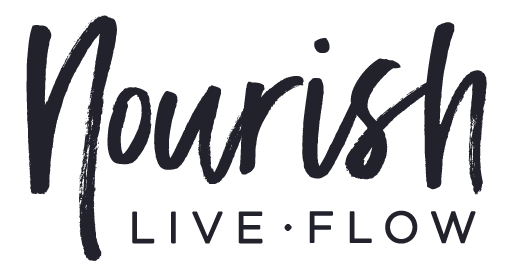Beyond Food: Why Detoxing Is More Than Just What We Eat.
As a naturopathic doctor I firmly believe that health is more than just what we eat. It’s also how we move, what we think & what we say. Although detoxing is a fantastic way of clearing out our liver and body from built-up toxins, if we solely focus on eating clean (and not our stress, movement and mental health) we can miss out on the powerful impact of detoxing the rest of our lives. Neglecting these other areas can affect the success of any detox or clean eating program. Here’s why:
Why food isn’t enough
I had an important realization during my 3 or 4th detox years ago. I thought I knew the ins-and-outs of clean eating and I considered myself a bit of a ‘detox pro’. I wasn’t cheating with my food choices and I was diligent about taking all of my supplements. But then the unthinkable happened; half way through my spring detox my acne (and reason for detoxing in the first place) came back! I was so angry and frustrated; I thought ‘I’m doing everything right, why is this happening??’ What I later realized (with insight from my awesome naturopath) was that my stress levels were being ignored. What?? Stress can affect my skin even if I’m drinking green juice? Yes. Yes, it can. After that day, everything changed for me. I started to take stress management as seriously as I did my smoothies. The good part was, I didn’t have to meditate for hours every night, or pretend like nothing bothered me. I made small changes that reduced my frustrations and feelings of overwhelm. I came to terms with the fact that life’s stressors weren’t going away, but how I was dealing with them was definitely something within my control. Think for a second how you feel when you’re stressed. What ‘gets worse’ for you? Is it your mood, your menstrual cycle, your digestive tract, or maybe gaining extra weight? These are the areas to keep tabs on in order to monitor how well you’re dealing with stress. Here are a few practical tips to make sure your cortisol levels stay balanced:
Mini Digital Detox
Technology is everywhere. But this shouldn’t mean that it’s with us all of the time. Watching TV or checking our emails and phone before bed is detrimental to the overall quality of our sleep. Even if you have no trouble falling asleep, waking throughout the night or waking in the morning feeling unrested are sure signs that you are not getting the most restorative sleep. Might I remind you that it’s called ‘beauty rest’ for a reason—this is the crucial time for cell repair, and of course, detoxification (especially of the brain). When you’re detoxing, aim for 1 hour of no screen time before bed. Even as little as 20 mins can make a difference on your melatonin levels (the powerful sleep hormone).
Move more slowly
Since most of us lead stressful, busy lives normally, detoxing shouldn’t be adding more stress to our routine! Vigorous exercise temporarily raises our cortisol (the stress hormone), which is why taking it down a notch for a few weeks can actually do the body a lot of good. Try a yoga or pilates class to encourage relaxation and circulation in a calmer setting.
Keep a Journal
Keep a notebook by your bedside. Every morning or evening spend 5 minutes freely writing anything that comes to mind. You may wish to focus on your detox: what’s been challenging and what obstacles you have overcome. Alternatively you can reflect on one goal or intention for the day (for example: to be more patient, take a walk at lunch etc.) and write down why that particular item is important to you. This is great way to clear your mind, boost your mood and manage stress; all in a few minutes!
What's your favourite way of taking a whole-body approach to detox?
About the Author:
Dr. Laura Belus is a naturopathic doctor practicing in the Greater Toronto Area and creator of the 21 Day Whole Body Detox. She believes getting healthy shouldn’t be hard and strives to make things simple AND effective. Learn more about her approach to wellness at www.drlaurabelus.com.

